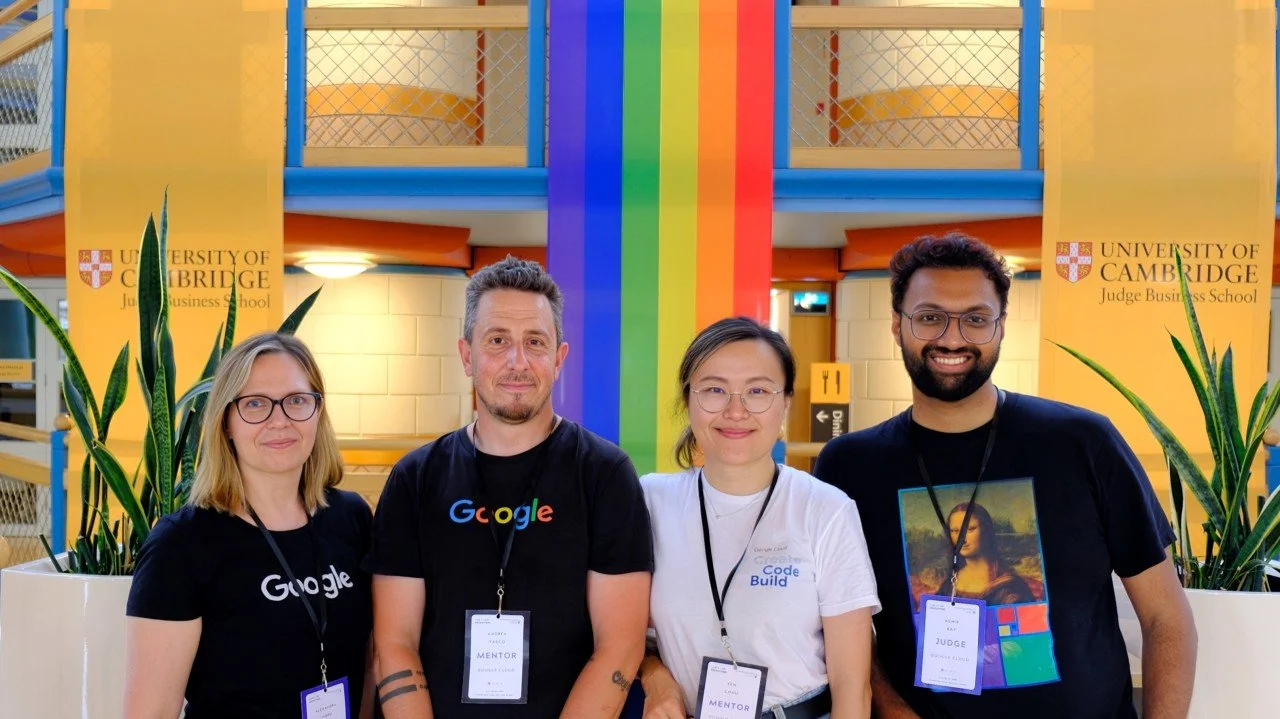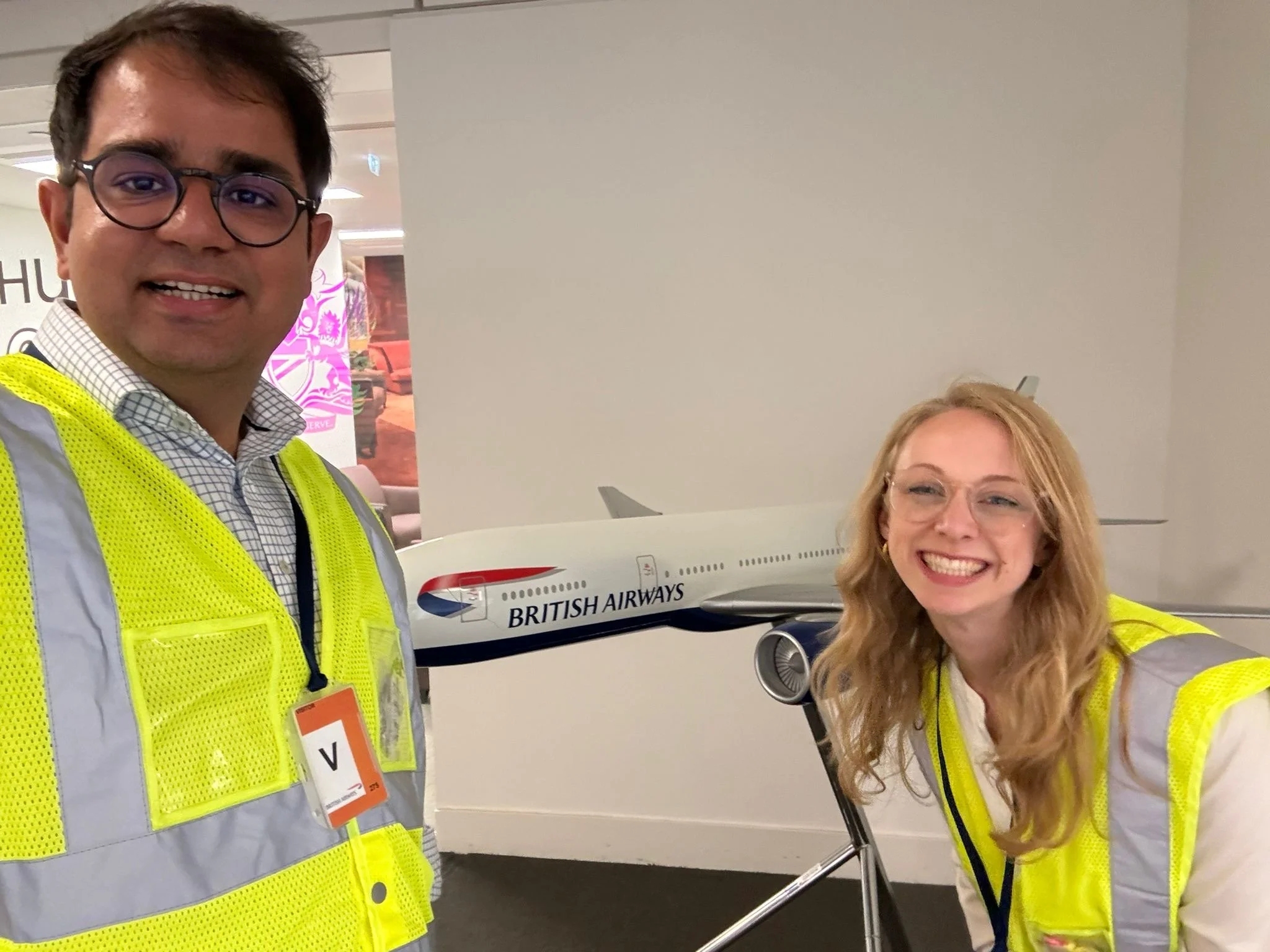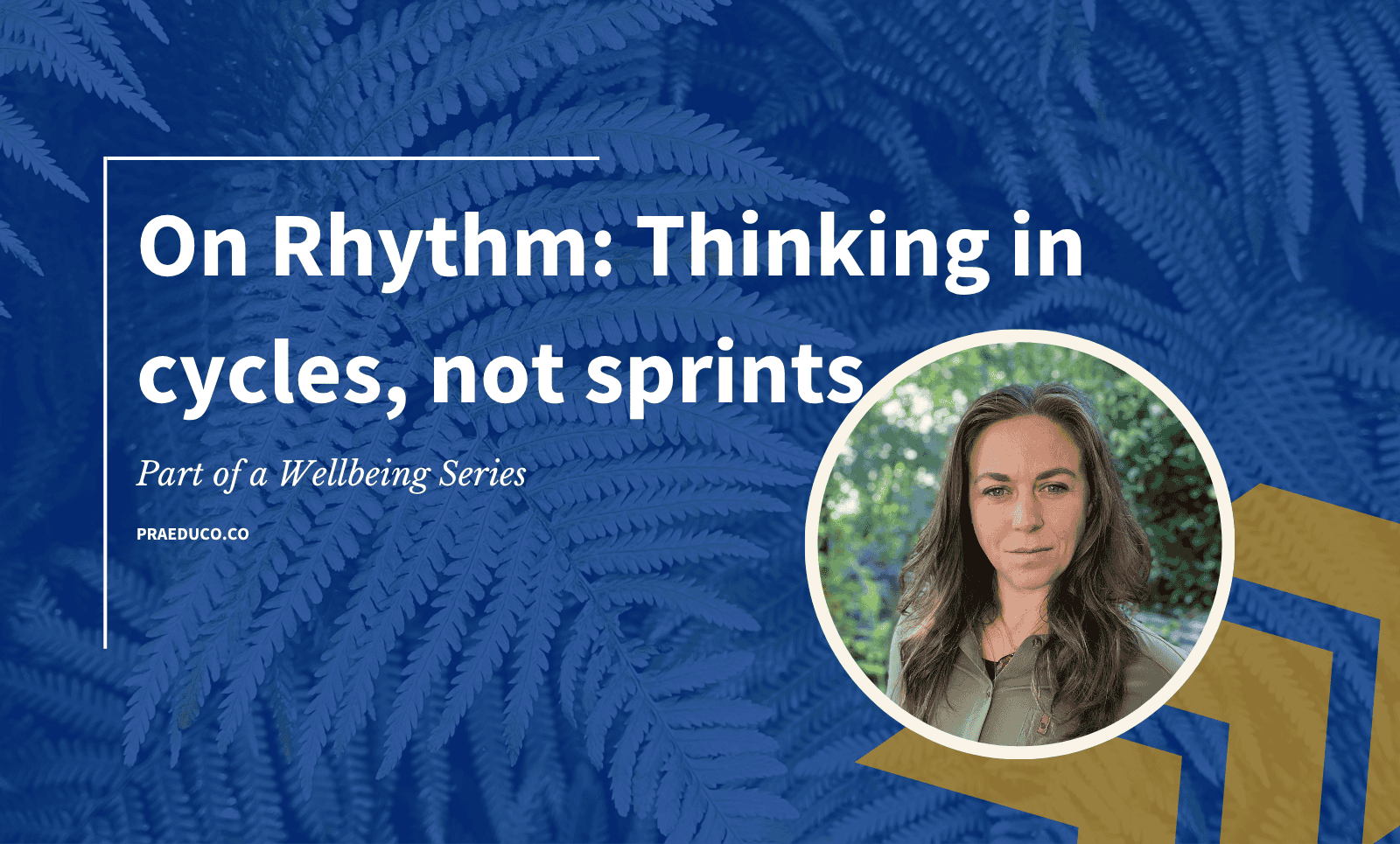"Mindsets" is a blog series featuring short posts that showcase interesting people, research, and innovation associated with the E-lab.
The name "Mindsets" reflects a key concept: entrepreneurship should be understood not just as a specific activity, but as a mindset. These mindsets shape how we perceive the world and approach challenges.
“Mindsets” aim to capture the energy and depth of the thrilling environment that E-lab is creating—one that brings together individuals from various fields and fosters collaboration between academia and industry.
Filter by Topic
From Microchips to Macro Machines: Mapping Manufacturing Mysteries with AI
Last week we hosted the Next Turing Tests Conference to celebrate the anniversary of Turing’s paper ‘Computing Machinery and Intelligence’ and to explore a variety of questions about AI.
Continuing this theme, in this week’s blog one of our E-Lab residential students, Hanu Priya Indiran, outlines how she is using AI in her research to design manufacturing systems for sustainability, at scale.
‘Judement is Turned Backwards and Justice Standeth Afar Off’*: Considerations of AI Adjudication Via LLMs
The essence of judicial process is inextricably linked to its human element. As technological legal tools and the innovative solutions which employ them rapidly advance, attention is required for the debate on how to balance the hope and enthusiasm of change, with the considerations of the social ramifications that processes of ‘disruption’ can bring. In this week’s blog, read Part II of the essay by Demetrius Floudas as he questions the place human judgement in the era of legal AI, and investigates the role that initiatives like the LLMxLaw Hackathon and organisations like the E-Lab must play as these debates continue.
New Year, New Resolution? Why Resilience Outperforms Resolution
September brings with it a particular kind of energy. Unlike the more artificial new year reset in January, the start of the academic year signals a tangible transition: returning to Cambridge, stepping back into familiar streets and routines, yet knowing that the months ahead will demand new levels of focus, learning, and growth. There’s an eagerness that comes from summer rest - renewed energy, a readiness to absorb new ideas, the spark of fresh influences. But alongside the excitement often sits a quieter uncertainty: what challenges will this term bring? Where will the next step up take us?
An Answer to Alex’s Problem: DialogueAI
At the end of June, the King’s E-Lab ran its annual LLM x Law Hackathon, in partnership with Stanford University CodeX and the Cambridge Judge Business School. The four-day event brought together over 150 students from 14 countries representing 43 universities. For a second year running, it produced an array of exciting collaborations and innovative solutions to legal challenges set out by our sponsors. In this week’s blog, hear from DialogueAI, the team who placed second in the Hacker Track, not about a product but about a solution to a new-found friend’s problem.
Opportunities Come from Surprising Places. Be Ready to Pounce
At the beginning of July, Federal Reserve Bank of Atlanta President, Raphael Bostic, joined Gillian Tett at the E-Lab to talk about the U.S. economy, monetary policy and the state of the economics profession. An avid believer in inclusive leadership and working with your passion, in this week’s blog, President Bostic reflects on the role an entrepreneurial frame of mind has played, even for his work in less assumingly entrepreneurial institutions, and on the benefits of embracing the unexpected.
A Weekend with the Law(AI)ers
In June, the second E-Lab LLMxLaw Hackathon brought together over 150 students from 14 countries and 43 universities. Across lightning talks, workshops, networking and hacking, these students interacted with mentors and experts from a variety of local and international sponsors and partner organisations. In this week’s blog, read the reflections of Ashik Kay, a member of the team that represented Google Cloud, on the democratisation of AI, human-led intelligence and the need to ‘Mind the Gap’ in such fast evolving environments.
Stolen Sleep and Shrinking Brains – The Impact of Climate Change on Rest
What if climate change is not just about rising seas or hotter days, but also about stolen sleep and shrinking brains? As temperatures increase, the negative consequences for sleep and for health are also on the rise, and they require us to think about innovative approaches to how we design and build. In this week’s blog, E-Lab Residential Student Hauwa Busari outlines her research into heat and sleep, calling for a serious rethink on design before climate change claims our ability to rest.
KnowYourRights: The Hackathon experience
From June 19th to June 22nd 2025, the King’s E-Lab hosted its second annual Hackathon with Hack the Law in partnership with Stanford’s CODEX. The weekend brought together over 150 students from 14 countries representing 43 universities and produced exciting collaborations and innovative solutions to legal challenges set out by our sponsors. In this week’s blog, hear from the winners of the special category Access 2 Justice on their solution: KnowYourRights.
Toksvig on Turing: The Spirit of Humans (and Berries)
Sandi Toksvig took to the lectern in Keynes Hall at King’s College on the 8th of May to deliver the annual Alan Turing lecture. The subject of the speech, a consideration of bias in the era of AI, was prefaced by an extensive archival display of mementos of Turing’s time at King’s, letters from the course of his extraordinary life, and traces of the stories which make up the road (still being trodden) to equality in Cambridge. In this week’s blog, E-Lab Member Sophie Harbour reflects on the lessons from Toksvig’s talk about how to use notably human talents to tackle the challenge of bias in AI.
What do Aviation and Synthetic Biology have in Common? The Journey of Neela Biotech
Next week the SPARK incubator programme, created by King’s E-Lab in partnership with Founders at the University of Cambridge, will kick off. Gathering together some incredibly exciting teams, the four weeks will be an intensive residential programme to supercharge ideas and create ventures with the potential to change the world. In this week’s blog, read about the journey of Neela Biotech, one of the selected teams, and its founders’ vision for the future. Developed by aerospace engineer Deepanshu Singh (CEO) and synthetic biologist Friederike Nintzel (CTO) who met in Cambridge through their shared passion for sustainability and climate tech, Neela Biotech brings a rare interdisciplinary edge to the future of sustainable aviation and to the challenge of Sustainable Aviation Fuel (SAF).
A Woman of Many Firsts: Ambassador Maulidah Hassan’s Lessons for Leadership
On the 10th of June, the King’s E-Lab hosted Ambassador Maulidah Hassan, a distinguished Tanzanian diplomat and the current Personal Assistant for Diplomatic Affairs to President Samia Suluhu Hassan – the first female Head of State in Tanzania’s history and a transformative figure in African and global politics. In conversation with Uduak Jesuthasan, Ambassador Hassan provided insight into what can we learn from navigating complex, patriarchal systems that do not ordinarily set the ground for women to hold the highest office. In this week’s blog, read Nageen Qasim’s reflections on the night.
Finding Your Rhythm: Why Entrepreneurs Need to Think in Cycles, Not Constant Sprints
Rhythm is a key part of sustainable entrepreneurial thinking and, today, success is still too often assumed to be the consequence of an unrelenting work schedule rather than an awareness of personal resilience and recovery. We need to shift this thinking. In this week’s blog, read Elle Whitelegg’s second post in our Wellbeing Series, as she identifies how to make this shift by reframing our understanding of cycles of achievement and performance, and by managing not just our time but our energy.
Valuation of Disputes as an Alternative Asset using Artificial Intelligence: No Human Intelligence
From June 19th to June 22nd 2025, the King’s E-Lab hosted its second annual Hackathon with Hack the Law in partnership with Stanford’s CODEX. The weekend brought together over 150 students from 14 countries representing 43 universities and produced exciting collaborations and innovative solutions to legal challenges set out by our sponsors. In this week’s blog, hear from the third-place winner Daria on her experience of the weekend and on her approach to addressing challenges in litigation: No Human Intelligence.
Unlocking Opportunity for Local Government: Introducing FIG
How can we improve civil services with modern technology so that municipal governments can provide citizens with the best service possible with limited resources? This is exactly the question that Magan Chin and Stan van Baarsen are trying to answer with their venture, FIG. On Tuesday 27 May, the pair participated in the final Pitch@King’s of the year with the hope of articulating their mission and sharing how they aim to address the bottlenecks in local government services. In this week’s blog, read the founders’ reflections on the development of their partnership, their journey to Pitch@King’s, and their hopes for their venture.
How can I submit a piece?
Submissions for the "Mindsets" blog series can be made as follows:
Send short posts (approximately 800 words) to seh220@cam.ac.uk
Content should relate to entrepreneurship and the entrepreneurial mindset, though the brief is flexible. The organizers especially welcome critical perspectives that raise questions and prompt responses, as well as thought-provoking reflections and innovative ideas.
When submitting, please specify a category that best fits your piece:
Entrepreneurship advice,
Reflections on E-lab events and activities,
Opinion pieces on entrepreneurship and its societal impact,
Research by E-lab community members.
Looking forward to reading your piece,
Sophie















